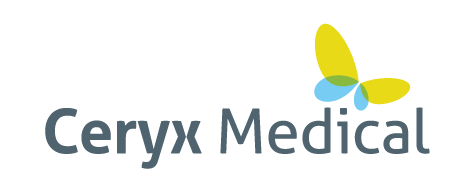Ceryx Medical was formed in 2016 as a result of innovative research undertaken at the Universities of Bath and Bristol.
The bioelectronics spin-out company has developed revolutionary microchip technology for medical devices. They are currently developing an enhanced cardiac pacemaker which has the potential to be the world’s first curative therapy for heart failure.
The £575,000 seed funding secured by Ceryx Medical includes £250,000 commitment from the Development Bank of Wales, £225,000 from angel investors, and £100,000 from the University of Bristol’s Enterprise Investment Fund, managed by the leading UK university spinout investor, ParkWalk. This investment will see Ceryx Medical expand their management and technology teams.
Professor Alain Nogaret, from the University of Bath’s Department of Physics, is on the Board of Directors at Ceryx Medical. He says:
It is exciting when science created in the lab for its own sake impacts positively on life. This seed investment secured by Ceryx Medical will be wonderful news for patients who will benefit from the significant life improvements this therapy brings.
Ceryx Medical is developing a unique bioelectronic technology which can mimic nerve centres within the body called Central Pattern Generators (CPGs). These CPGs help to control a range of autonomic or rhythmical processes within the body such as peristalsis, heart rate and even walking. The first application for this technology is in a new cardiac pacemaker that has the potential to be the world’s first curative therapy for heart failure.
The impact of Ceryx Medical’s new cardiac pacemaker
16 million patients have heart failure in the EU and US. Current therapies are ineffective, with 50 percent of patients dying within five years. The deterioration in their heart function results in increasing morbidity, and this group of patients accounts for two per cent of healthcare spending – $30.7 billion each year in the US alone.
Current cardiac modulation devices – (pacemakers) are generally implanted under local anaesthetic as a day-surgery. A Ceryx device could be inserted early in the disease process, preventing progression of the disease and reversing damage to the myocardium.
As a result of the investment, Ceryx Medical can establish Proof of Clinical Benefit studies as they aim to launch their first human studies by early 2023. They are also eligible for an additional £150,000 grant from Innovate UK as part of its Regional Angel Investment Accelerator (RAIA) scheme, due to the financial commitment from angel investors.
Commenting on the impact of the funding for the business, Dr Stuart Plant, CEO at Ceryx Medical, says:
Currently, patients diagnosed with heart failure face a worse 5- year prognosis than those with most forms of cancer. During this time patients will experience increasing morbidity and reduced quality of life. This investment will allow Ceryx to begin demonstrating the remarkable improvements our device may bring to the outlook for these patients.
Ceryx Medical has a history of success, having won the BioDesign Award at the Launch: Great West Awards in 2019 in recognition of scientific startups in the South West. More on this.
Dr Phil Brown, Head of Technology Transfer at the University of Bath, who also sits on the Board of Directors at Ceryx Medical says: “We are delighted for Ceryx Medical to go from strength to strength as they further continue to make a global impact with their exceptional life sciences research and subsequent technological development.”
For support in commercialising your research contact the Technology Transfer team in Research and Innovation Services.


